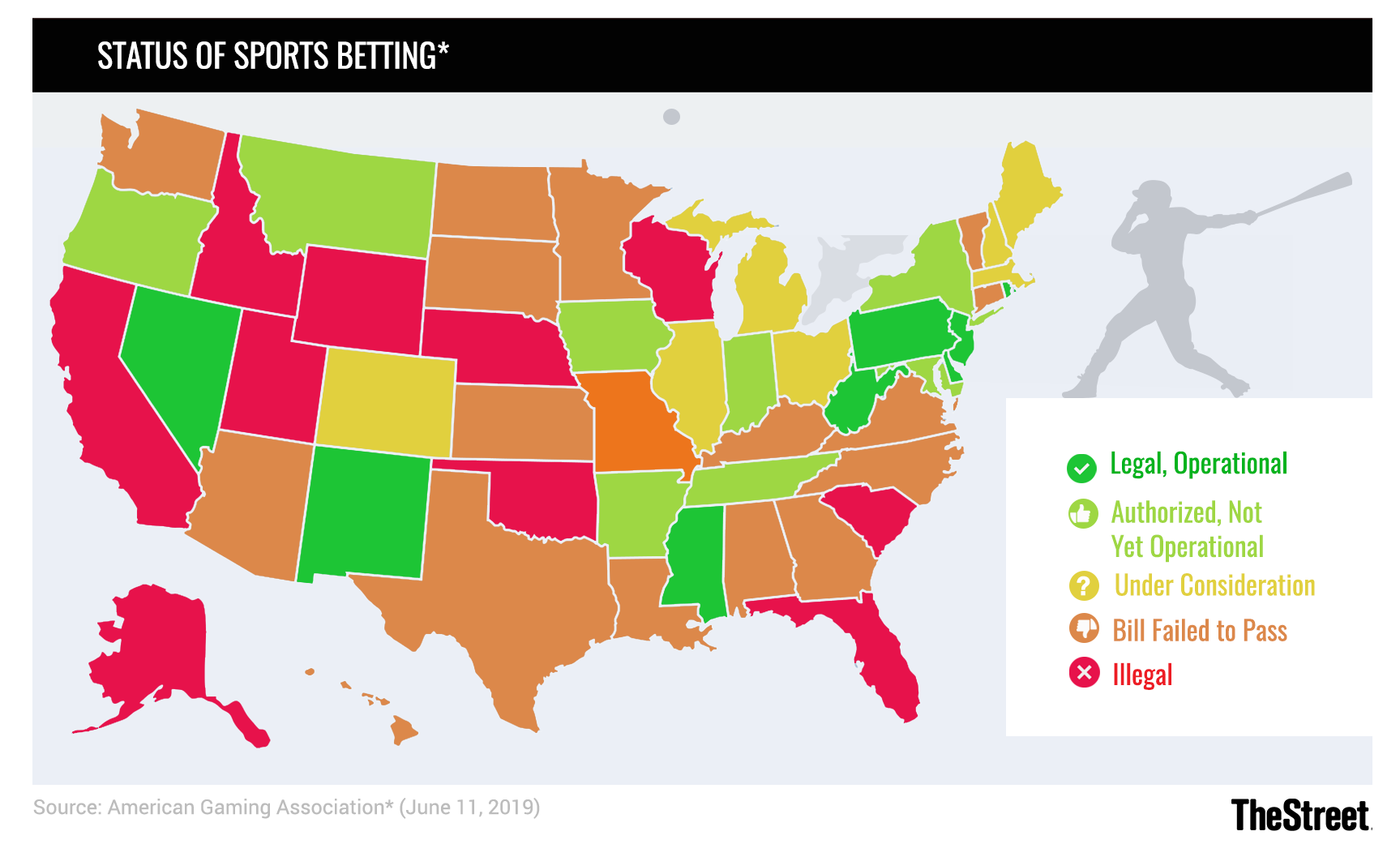Gambling Illegal In What States
Gambling And Crime Rate Essay, Research Paper
- Gambling Illegal In What States
- What States Can You Legally Gamble
- Gambling Illegal In What States
- Gambling Illegal In What States In America
Many factors have influenced the rising crime rate, some being, increasing use of drugs, increasing population, and decreasing morals. America must find ways to decrease the crime rate legally. One question often going hand in hand with decreasing crime rate is would legalized gambling decrease the crime rate?

During the late 1980’s and early 1990’s slow economic growth, cuts in federal funding, and growing public needs forced state and local governments to seek additional sources of revenue. Most states turned to lotteries, horse and dog racing, and most recently a growing number of states have resorted to casino gambling as a painless way to raise money. Case studies show that legal casino gaming can increase tourism, employment, sales of noncasino goods, and tax revenues (Cabot 1). For example, The New Jersey Casino Control Act of 1977 states legalized casino gambling has been approved by the citizens of New Jersey as a unique tool of urban redevelopment for Atlantic City (Thompson 144). Legalized gambling provides a major new source of revenue for the state (Kurk 1).
Even though 48 states have some form of legalized gambling such as lotteries, horse racing, casinos, riverboat and Indian casinos, casino gambling still remains illegal in most states (NCALG 2). Casino gambling, which was once limited to two states, is now legal in twenty-one states. Some states are Colorado, Illinois, Indiana, and South Dakota. Over time we have seen a change in the gambling market. At one time, only Bingo parlors could be found on Native American reservations. Today almost one hundred casinos are operating in twenty-one states (Begun, Siegal, and Jacobs 29).

As with any industry, legal online gambling is in a constant state of flux. While laws are always changing and businesses are constantly rising. Online casinos are very popular among players worldwide, yet online gambling isn’t legal everywhere and there are specific rules on some jurisdictions. Remaining within the law is the. Gambling is restricted in America, though its popularity is increasing. Laws regarding gambling are important not only for those involved with gaming operations, like casinos, bingo, or poker tournaments, but also for the average person who wants to know whether he can legally start a betting pool among his friends or at his office, has an idea for a new business model involving some form of.
There are five types of legal gambling in the United States: bingo, lotteries, pari-mutual betting, off track betting and casinos. Bingo is the most common form of legalized gambling; forty-six states participate in legal Bingo. Forty-three states permit thoroughbred horse racing, Lotteries are allowed in thirty-seven states, and only twenty-one states permit casino gambling (Begun et al. 27).
Illegal gambling like legal gambling is deeply rooted into American Society. Despite innumerable federal and state laws, illegal gambling still remains a part of American life. The four principal forms of illegal gambling are numbers, horse books, sports books, and sports cards. The numbers game is a sideline game of the lotteries. Originally, lotteries were used to raise money for civic or charitable causes, while numbers was played to earn money for the Lottery Company. It is commonly believed that the “numbers’ game gave rise to gambling syndicates ( 132). Betting on horses or Horse books is run by a “bookie”. The racetrack-licensed bookies to accept bets at the tracks, for that privilege, bookies paid the racetrack operators a daily fee, usually around $100 a day. The most popular form of illegal gambling is gambling on sporting events (133). There are four states that allow betting on sports, these are Montana, Nevada, North Dakota, and Oregon (PBS 1). Some estimate that professional football alone attracts $50 billion in wages per season (Begun et al. 133). Sports cards are very popular for the $1 to $10 sports bettor. Sports cards are also run by a “bookie”. A bettor selects a team that he or she thinks will win and tears off a card stub and submits the cards before the start of the game (134).
There has been an increase in the use of loopholes in the government, an example of this would be gambling on cruise ships. In 1992, Congress was forced to approve a general maritime law (PL-102-251). This law permitted gambling on American registered cruise ships once they were more than 3 miles offshore, on international voyages. This law possessed one flaw. Out of over 100 American docked ships, only 2 percent were American registered. These foreign registered ships were also operating casinos offshore. This forced California to pass a new law, only months later. This law (AB3769) banned gambling on foreign registered ships (Begun et. al 13).
With the rise of legalized gambling, many politicians have brought up the question as to whether legalized gambling would decrease the crime rate? As cardrooms and gambling facilities have grown nationwide, the issue has divided many communities. Concern has reached Washington, D.C., where the House Of Representatives have passed a bill to establish a two-year commission to study the economic impact of gambling (Correa 2). There are many arguments for and against this. The National Coalition against Legalized Gambling, or NCALG has published a table, The Case against Legalized Gambling. An argument made by the NCALG is that gambling depresses legitimate business, siphoning off money from the regular business community (NCALG). If this were true, then places like Las Vegas where the main revenue is gambling would not exist. The main source of revenue in Las Vegas is gambling. 87% of people who visited Las Vegas in 1996 gambled (PBS 2). The revenue brought in by legalized gambling can be put towards education, welfare, social security and public funds. Last year, for example, the Commonwealth of Virginia generated $331 million in state lottery revenues and earmarked it for education (Kaye 2).
An argument believed by many, as well as the NCALG, is that gambling increases welfare costs (Thompson 56). In actuality an effective gambling tax would generate money for public welfare. Nevada brings in $500 million alone through gambling revenue, which accounts for 42% of the states total revenue (50). Not only would legalized gambling increase welfare funds, but also create jobs. In the mid 1990s, Las Vegas has emerged as perhaps the best example in the United States of job fare, with the change of welfare recipients to work status (56). In Nevada, gaming employs 211,000 or 24.41 percent of the workforce (Cabot 1).
A major issue with the increase of legalized gambling would be the influence of gambling on crime. The NCALG states that gambling increases crime (Begun et. al 23). The evidence of any connections between crime and gambling is rather weak. Opponents of casino gambling exploit people’s fear of increased crime and use it as their primary weapon against the legalization of casino gaming (Danburg 1). As legalized gambling would lead to more jobs; the crime rate may actually go down. Jim Moody, supervisory special agent, FBI Organized Crime Program, in Congressional testimony in 1992 said, “As legalized gaming spreads throughout the United States, we are seeing that those states with strong regulations and enforcement are not experiencing an influx of organized crime activity” (151). In the words of Debra Danburg, “There are no longer gangsters in pinstriped suits even remotely involved with casino gambling. Strict regulations set forth by state and federal government and gaming commissions have exorcised crime elements from the industry (2). To look at this issue in another light, what is the effect of making gambling illegal? Where gambling is illegal, the underworlds reap a windfall of illicit cash. Respect for the law is undermined and police forces are corrupted (Isaacson 136).
Another argument made by the NCALG is that gambling corrupts Government. The flaw in this argument lies in the fact that in 1996 Gambling interests have contributed 4.5 million dollars to political parties and candidates at the federal level since 1991 (PBS 2). The NCALG claims gambling produces human desperation (Begun et. al 23). Sociologists see gambling as part of the process of role behavior and social class orientation (Thompson 73). Every argument against legalized gambling can be argued against. If every argument possesses a flaw than there is evidence that society may be better off legalizing gambling.
While legalized gambling may be good for society, it may also cause harm. The NCALG estimates that 2.5 million people are pathological gamblers, and another 3 million are problem gamblers (1). A pathological gambler shows many recognizable signs, these being frequent preoccupation with gambling, securing money in order to gamble and denying losing after doing so. These are just a few of many. There are treatment programs for problem gamblers, but a pathological gambling disorder is often an irreversible condition. The best cure for a gambler is abstinence, just as an alcoholic must control himself by never again drinking a single drink, the addicted gambler who seeks a remedy must never place another bet (Thompson 75).
Another problem associated with legalized gambling is the increasing bankruptcy rate. Nevada had the fourth highest bankruptcy in the nation in 1996. Mississippi, the state with the second highest level of gambling, ranked fifth in the nation in per-capita bankruptcy filings (NCALG 2). Although bankruptcy may be a problem, for some it has proved to be a solution. Sociologist, John Rosecrance feels that losing huge amounts was the chief reason to quit gambling (Begun et. al 91). The best cure for a gambler would be abstinence (Thompson 75). However, most states may find that some form of low stakes, no “glitz” gambling will both satisfy their citizens unstimulated demand for gambling and also provide an environment where the state can regulate the industry to minimize the incidence of problem gambling (Cabot 10).
Governments are shifting from their role of gambling regulator to that of a gambling promoter (Goodman 1). Many reasons have contributed to the changing position of state and local governments, such as having seen major increase in social problems like drugs, homelessness, crime and unemployment. Also having had to deal with downsizing by major private firms, having had to bear the brunt of reduced federal aid for their budgets (2), contribute towards changing attitudes. With the nation’s apparently increasing tolerance for once-prohibited activities, coupled with a growing need for state and local revenues, the lure of gambling revenue has prompted most states to reconsider and usually change their gambling policies (Begun et. al 7). While some state and local government officials oppose legalized gambling, some benefit from the revenues. For example, more than $200,000 in gambling revenue, was contributed to Bob Dole’s presidential campaign, President Clinton also received $60,000 in gambling revenue (22). If we remember correctly, an argument made by the NCALG was that gambling corrupts government. However, by the looks of the figures, in my opinion gambling helps the government operate.
The controversy over American casinos comes down to a narrow argument concerning cost benefit criteria between the proponents, who cite increased tax revenues and jobs, and opponents, who claim devastating social problems if casinos are legalized (Cabot 6). Those who would outlaw gambling because some people become chronic gamblers are like those who would prohibit alcohol because some people become problem drinkers. The analogy between alcohol and gambling is relevant: Prohibition simply did not work. People will gamble even if it is illegal, just as they will violate other unreasonable curbs on harmless pleasures.
Experienced players know how hard it is to find a reliable online casino that would serve U.S. citizens and the same refers to bitcoin gambling sites. The current legal framework in most of the United States DOES NOT expressly stipulate that betting bitcoins or other cryptocurrency in online casinos is illegal. To understand better whether bitcoin gambling is outlawed or not in the USA, let’s look at the most important applicable law that governs online gambling.
mBit
5 BTC on first 3 deposits + 50 FC!7Bitcasino
Up to 5 BTC in bonus money + 100 free spinsMars Casino
up to $300 + 50 Free SpinsSlotoCash
Get up to $7,777 in welcome bonuses!Bovada
$5,000 welcome packageGambling Illegal In What States
Uptown Aces
Get up to $8,888 in welcome bonus!Miami Club
$800 welcome bonusIgnition
200% welcome bonus up to $2,000Slots LV
Get up to $7,500 with bitcoin welcome bonusCafe Casino
Bitcoin welcome bonus up to $6,000
UIGEA
The Unlawful Internet Gambling Enforcement Act signed in October 2006 stipulates that banking facilities and credit card companies are not entitled to facilitate transactions related to online gambling. In other words, online casinos operating before 2006 were able to use the US banking system for their purposes but the UIGEA closed that opportunity. The Act forced some big and thriving operators like PokerStars that was among the most visited poker rooms in the U.S. to draw out of the market. To sum up the point, the use of banking system for gambling purposes is prohibited in the USA. The facts set forth above made some online casino operators shift their focus to non-traditional payment options like cryptocurrency, which does not violate the law.
Bitcoin gambling from players’ perspective

To put it briefly, no federal legislation makes online gambling illegal for players. Current laws prohibit casinos to ACCEPT wagers on the territory of the USA but there are no laws that would forbid individuals to PLACE bets. That is why virtually all bitcoin casinos are based outside the U.S. territory to circumvent the law and accept bets without violating any regulations. As for practical application of the law for players, Bitcoin gambling has three legal statuses in the USA depending on each specific state: it can be legal, illegal and not unlawful. Let’s explore this in details.
In what states bitcoin gambling is totally legal and illegal?
U.S. citizens who live in Delaware, New Jersey and Nevada are allowed to take part in any gambling activities including the use of bitcoins; these relate to depositing cryptocurrency into the casino, betting and withdrawing. The casinos providing service to residents of these states must use special geo targeting software to make sure the customers are physically located in any of the three states.
What States Can You Legally Gamble
The only state that expressly prohibits online gambling activities is Washington. State residents may not use offshore gambling sites, register there and place bets in any currency, whether fiat or digital. Sure, the country has not enough manpower and resources to trace each player of the Evergreen State who visits and plays at offshore casinos but many gambling sites themselves restrict players from forbidden locations based on their IP addresses and other factors.
Why is bitcoin gambling considered ‘not unlawful’ in most states?
The majority of the United States neither legalized nor forbidden online gambling activities for ordinary players. To that end, players must abide by federal laws, particularly the Unlawful Internet Gambling Enforcement Act. In fact, this law does not clearly set forth whether any individual player is subject to prosecution for online gambling but there have been no charges or appeals against violating players for over 10 years since the Act became effective. And again, the Act is basically targeted against banks and online exchanges that process payments related to gambling activities. With this in mind, it’s always a good idea to stay alert and try to leave as little personal details as possible when buying bitcoins or sending them to an online casino. Below are a few tips on how to disappear from the spotlight and hinder the tracing of your identity:
– U.S. based exchanges are obliged to make their customers pass through KYC procedures. When registering, users have to upload their government IDs, utility bills and scans of some other documents to have their identity verified. Therefore, after purchasing bitcoins and then sending them to an offshore online casino, the transaction is tied to a specific name, thus it is easily traceable. To avoid this, consider channeling bitcoins through several middleman wallets with the casino as the final BTC recipient.
Gambling Illegal In What States
Gambling-related trends in U.S. legislation
Bitcoin gambling is not deemed to be unlawful in most states; however this is a hot topic in some states that still arises disputes and may eventually lead to some bans or liberalization, so the information in this review would not reflect the actual legal environment after a while. So before registering at any online bitcoin casino make sure the territory you are physically in does not prohibit online gambling.
Gambling Illegal In What States In America
On congress.gov, there is the Restoration of America’s Wire Act bill that was introduced in House in February 2015 and cosponsored by 26 Rep. senators. If passed, the Act will force all internet gambling businesses in the USA to transmit all wagering information to authorized bodies. This further means that the three states that have legalized online gambling will very likely discontinue servicing U.S. customers.